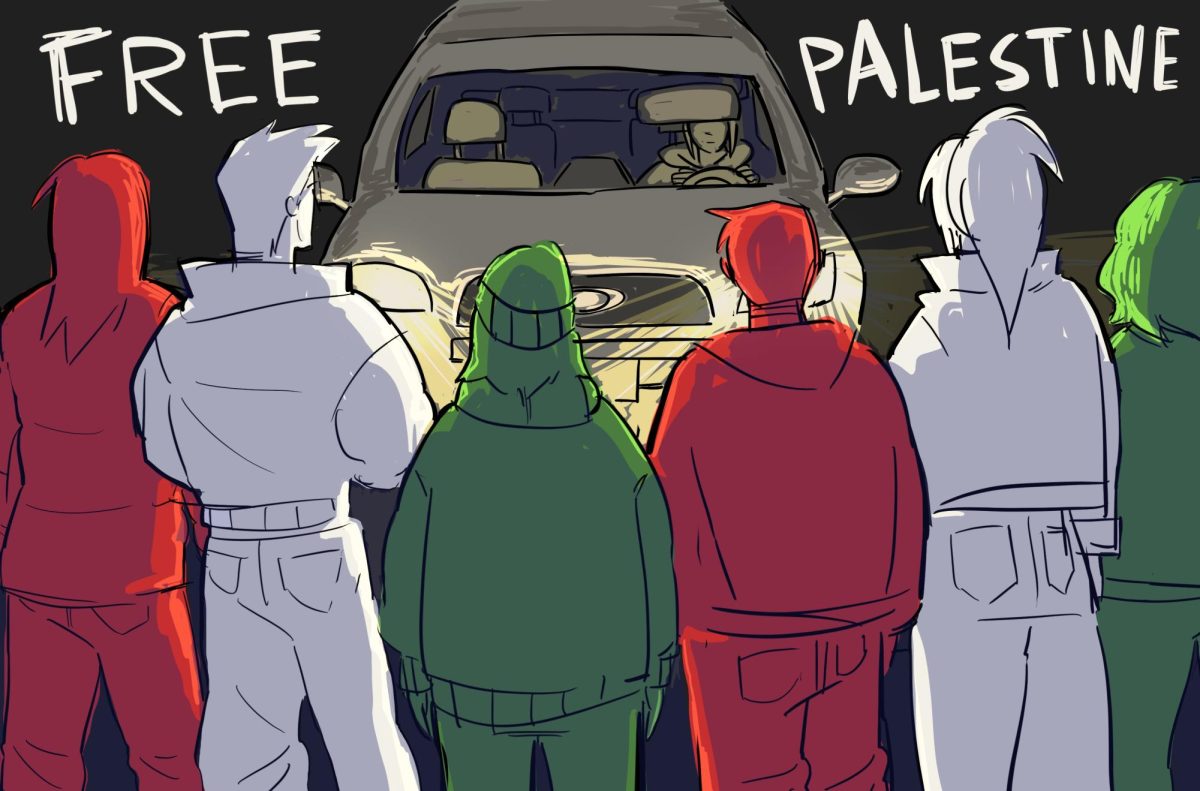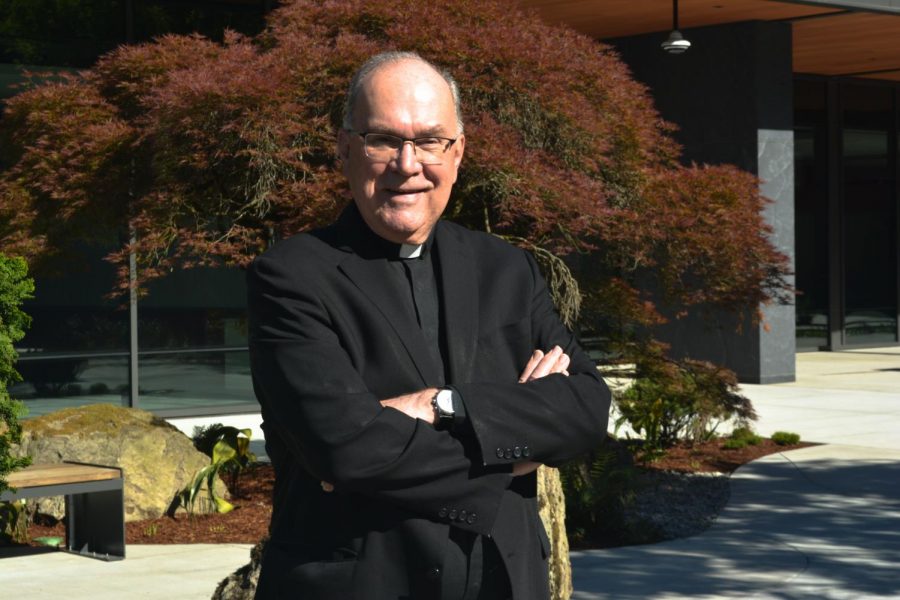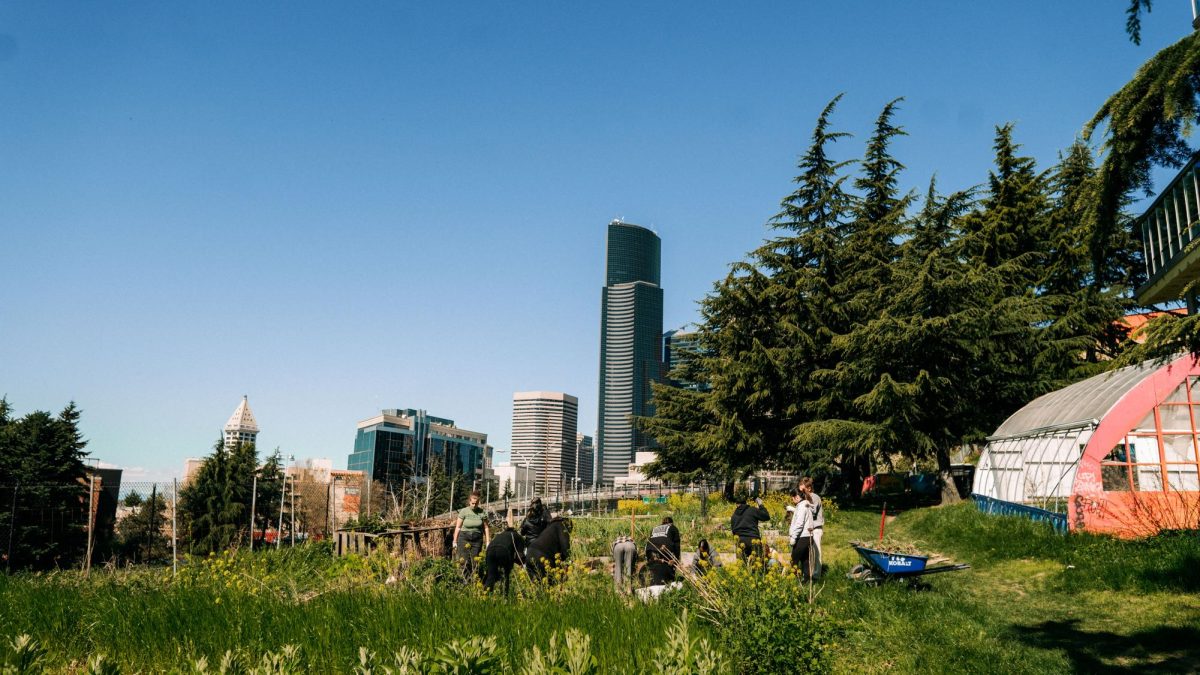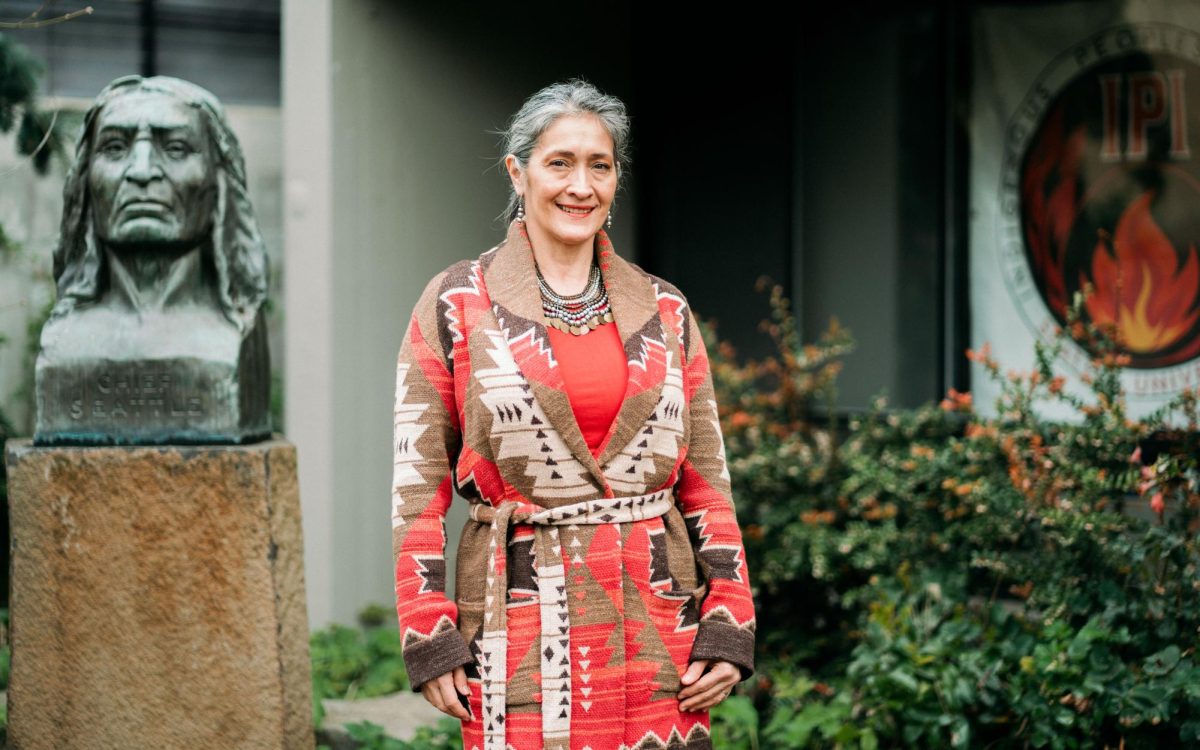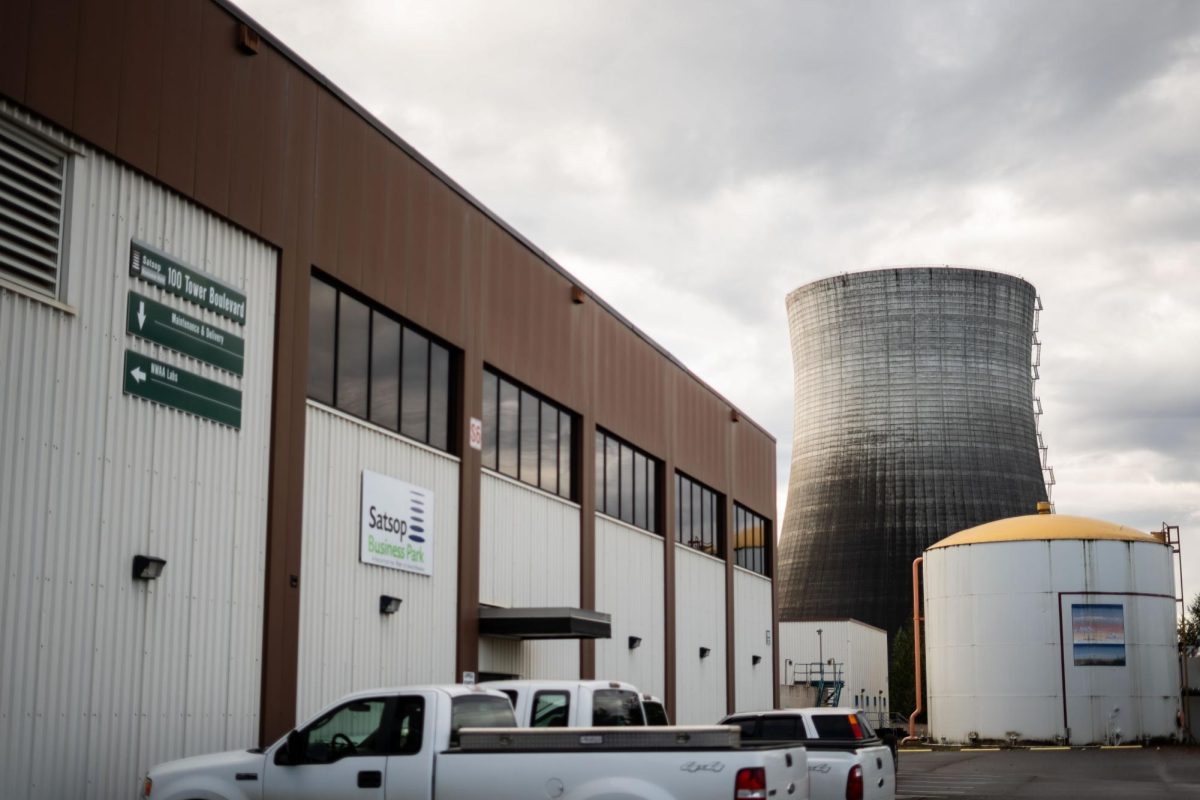Traffic was completely blocked on Interstate Five (I-5) near Pine Street, Saturday Jan. 6, by a group of Pro-Palestinian protestors calling for a ceasefire in Gaza and for the U.S. to end its support for Israel. According to the Washington State Patrol, the freeway was blocked from around 1:15 p.m. until traffic was fully restored at 6:07 p.m.
This protest was one of many that have taken place in the Seattle area in recent months, in response to what AP News has titled the “Israel-Hamas War.” Israel is currently defending against charges of genocide brought by South Africa in the International Court of Justice.
Jewish Voice for Peace (JVP) was part of a coalition of groups that helped organize the protest that began at the Starbucks Roastery on Saturday, but were not involved with the blockage of the freeway.
Kate Raphael, a member of Seattle’s chapter of JVP and activist, attended the protest and expressed that there is a sense of urgency to what is happening in Gaza because so many have lost their lives. With that, she thinks that people need to act in whatever ways they can.
“I think you have to really weigh if the issue is one that affects enough people severely enough to be worth disruption and inconvenience,” Raphael said. “I really feel like this is a situation where we have to do everything we can. We can’t just sort of stick to the nice ways of doing things, because people are dying daily.”
A Seattle University student who attended the protest agreed to be interviewed on the condition of anonymity after students in pro-Palestinian organizations on other campuses and those that show support for the ceasefire have faced doxxing, threats and violence. They shared how the protests are a way for them to show their support for the Palestinian people.
“I’m just very passionate about the issue happening right now, and would like to show my support for the Palestinian struggle,” the Seattle U student said. “There’s hundreds if not thousands of people protesting every Saturday around here, and I wanted to be a part of that.”
They explained that they were one of many protesters on a nearby overpass where the freeway blockage was visible, but they did not go on the freeway. Several hundred people were on nearby overpasses protesting, and around fifty people on the freeway itself.
Another Seattle U student who attended the protest, but also wished to remain anonymous said that they were unaware I-5 was going to be blocked during the demonstration.
“I didn’t even know that we were going to the freeway or that people were occupying the freeway as well,” a Seattle U student said.
Both students explained that they met with a large group of protestors outside the Starbucks Reserve Roastery on Pike Street where speeches were given before marching onto the overpass. They walked a few blocks before someone announced the I-5 blockage to the crowd. The students shared that they then made their way to the overpasses.
The first anonymous student explained that they felt actions like the highway blockage are understandable and justified as a response to the ongoing conflict.
“A common saying I’ve heard [among pro-Palestinian people] is that there should be no business as usual in times like these, when thousands of people are getting killed and the U.S. is funding it,” a Seattle U student said. “I think this is a way to show that we don’t want things to be normal. We want people to get angry and fight for what is right.”
To Raphael, the impact and scale of the current issue warrants disruptive action. She views U.S. support of Israel as allowing them to act without consequence, and explained that citizens have a responsibility to push for change. However, as time passes, Raphael fears that discussion and concern in the U.S. for Palestine may be decreasing.
“Of course there’s waning interest. It’s become normalized, and I mean I feel myself doing it, like this just becomes the new reality, and I sort of have to go, ‘okay, this is still not acceptable.’ I have to be as outraged today as I was on Oct. 7,” Raphael said.
One of the Seattle U students who attended the protest echoed Raphael’s stance as well.
“I think it should weigh on the American consciousness a lot more than it seems like it does,” the student said.
While some fear that the conversations surrounding the Israel-Hamas War may be controversial and dwindling, Raphael stressed the importance of civil disobedience and how it functions to remind people of when injustice is or still taking place.
“I think it’s necessary. I think that nothing has ever changed without massive disruption,” Raphael said. “The U.S., we’re in such a different position than most people in the world. Essentially our government can wage war all over the world with hardly any impact here. It’s very hard to get Americans to pay attention to anything that’s happening outside of our borders. I think you need disruptive protests to remind people periodically.”






